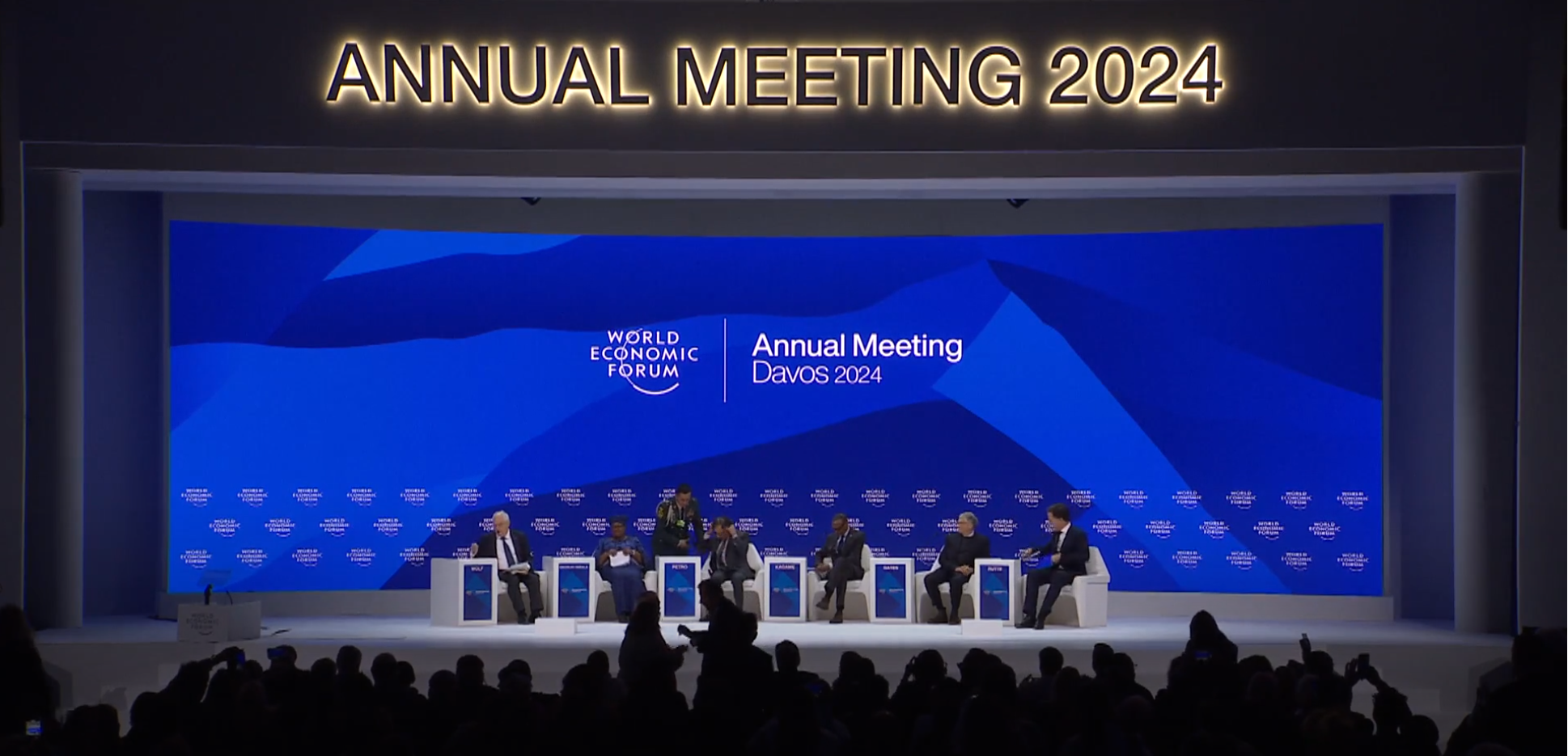
Global trade took center stage at the World Economic Forum’s 2024 Annual Meeting in Davos, where leaders discussed the challenges and opportunities shaping the world’s economic landscape. Simon Lacey, Head of Digital Trade and Geopolitics at the World Economic Forum, highlighted key themes that dominated the discussions, shedding light on the state of global trade and the efforts to rebuild trust.
Geopolitical Winds and Supply Chain Swirls
Geopolitical tensions, regional conflicts, supply chain uncertainties, and persistent inflation left an indelible mark on global trade in 2023. The World Trade Organization (WTO) noted a gradual return to long-term trade growth trends, with a delicate balance between weak goods trade performance and burgeoning global services trade.
The Call for Trade Revitalization
Børge Brende, President of the World Economic Forum, emphasized the need to revitalize trade, criticizing the hindrances caused by “slowbalization.” Leaders recognized the transformative nature of the current global economy, with Chrystia Freeland, Canada’s Minister of Finance, urging proactive engagement to shape the new economic landscape.
Rethinking Globalization for Inclusive Growth
Ibrahim Patel, South Africa’s Minister of Trade, called for a rebalancing of multilateral trading rules to favor developing countries. Dr Ngozi Okonjo-Iweala, Director-General of the WTO, emphasized the importance of reimagining globalization to ensure inclusivity and address past disparities, noting that the marginalized should benefit this time around.
Facilitating Growth: Concrete Steps
Practical trade facilitation took center stage, with the Global Alliance for Trade Facilitation launching projects in East Africa and El Salvador to streamline trade processes. Efforts to streamline investments, particularly in digital sectors, were also announced for Oman and Cyprus.
Trade and Climate: Walking a Tightrope
Aligning trade and climate policies stirred debates, with concerns about trade tensions sparked by climate measures. The Coalition of Trade Ministers on Climate, comprising over 20 ministers, explored common agendas for sustainable growth, emphasizing the role of trade in advancing climate action.
From Deglobalization to Poly-Globalization
Ursula von der Leyen, President of the European Commission, rejected the notion of decoupling, aiming for better management of supply chain dependencies. Vincent Clerc, CEO at A.P. Møller-Maersk,expressed scepticism towards the notion that deglobalization is taking place, noting like that “as of today, there is no data that shows this is under way”, and Professor Simon Evenett Founder at the St Gallen Endowment, also expressed skepticism about deglobalization, highlighting the undiminished global appetite for new markets. Emmanuel Macron, President of France, noted that European efforts to strengthen sovereignty were aimed at reducing overdependence on certain geographies for critical elements of supply chains and moving towards a global economy characterized by “balance, equilibrium and respect”.
Poly-Globalization: A New Trade Network
Rebeca Grynspan, Secretary-General at UNCTAD, coined the term “poly-globalization,” envisioning a decentralized trade network with multiple centers and peripheries. This shift towards a more complex network will rely on technology for cleaner, faster, cheaper, and fairer trade relationships.
Davos 2024’s overarching theme of “rebuilding trust” echoes in the rules-based trading system. Dr Thani Al Zeyoudi, Minister of Trade of the UAE, and Chair of the upcoming WTO Ministerial Conference, concluded the Davos Trade Press Conference with a resounding, “See you in Abu Dhabi.”
Source: World Economic Forum


